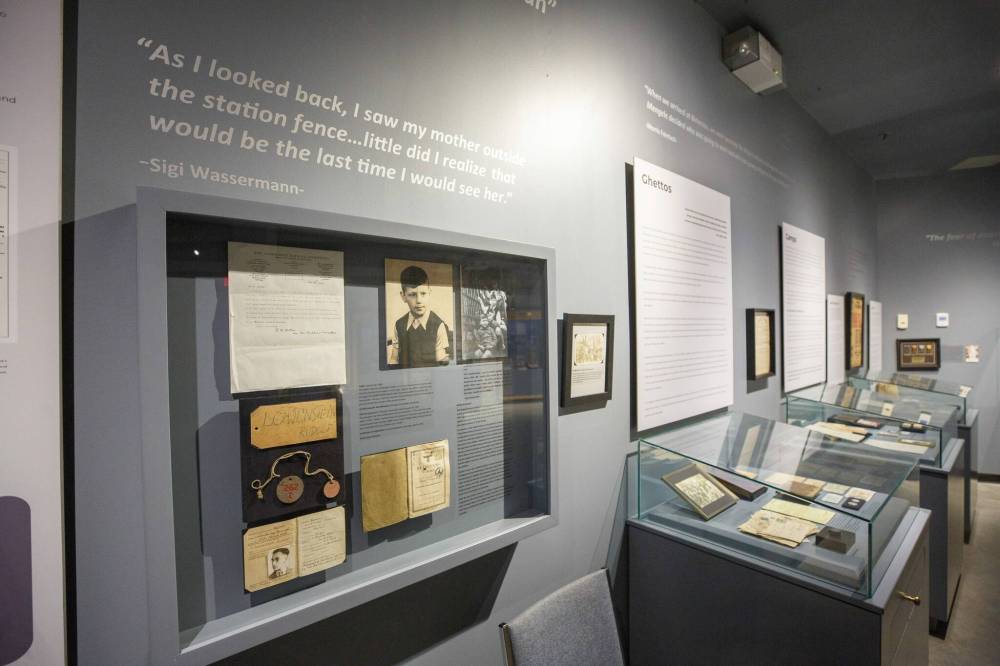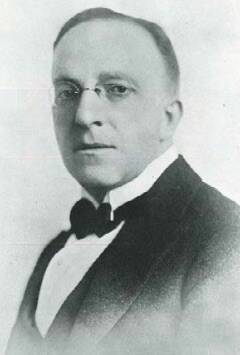A valuable tool to combat hate
Advertisement
Read this article for free:
or
Already have an account? Log in here »
To continue reading, please subscribe:
Monthly Digital Subscription
$0 for the first 4 weeks*
- Enjoy unlimited reading on winnipegfreepress.com
- Read the E-Edition, our digital replica newspaper
- Access News Break, our award-winning app
- Play interactive puzzles
*No charge for 4 weeks then price increases to the regular rate of $19.00 plus GST every four weeks. Offer available to new and qualified returning subscribers only. Cancel any time.
Monthly Digital Subscription
$4.75/week*
- Enjoy unlimited reading on winnipegfreepress.com
- Read the E-Edition, our digital replica newspaper
- Access News Break, our award-winning app
- Play interactive puzzles
*Billed as $19 plus GST every four weeks. Cancel any time.
To continue reading, please subscribe:
Add Free Press access to your Brandon Sun subscription for only an additional
$1 for the first 4 weeks*
*Your next subscription payment will increase by $1.00 and you will be charged $16.99 plus GST for four weeks. After four weeks, your payment will increase to $23.99 plus GST every four weeks.
Read unlimited articles for free today:
or
Already have an account? Log in here »
Hey there, time traveller!
This article was published 07/10/2023 (788 days ago), so information in it may no longer be current.
Could a long-forgotten Manitoba law be a model for how Canadians can fight back against antisemitism, Islamophobia and hate of all kinds? Kenneth Grad thinks it can.
Grad, 40, is a lawyer in Toronto completing his PhD at Osgoode Hall Law School. As part of his dissertation research, he visited the Jewish Heritage Centre of Western Canada here in Winnipeg. That’s where he learned about the Hyman Act, a unique-to-Manitoba anti-defamation law.
The act takes its name from its creator, Marcus Hyman, a respected lawyer and member of the Jewish community who served as a member of the legislature in the 1930s.

MIKE DEAL / WINNIPEG FREE PRESS
The Jewish Heritage Centre of Western Canada in Winnipeg features the Freeman Family Holocaust Education display.
Hyman developed the legislation in response to the virulent antisemitism being promoted by Winnipegger William Whittaker, founder of the pro-Nazi Canadian Nationalist Party and editor and publisher of an antisemitic newspaper called The Canadian Nationalist.
The Act received unanimous consent of the legislature and was passed into law in 1934. It was used that same year by William Tobias, a prominent member of Winnipeg’s Jewish community, who sued Whittaker for defamation against Jews.
Tobias won his lawsuit, obtaining an injunction perpetually restraining Whittaker from defaming Jews and putting his newspaper out of circulation.
The act was never used again by the Jewish community in Manitoba, and Grad could only find two other instances when the act was referenced. But it is still on the books in the province as section 19 of Manitoba’s Defamation Act.
It states Manitobans may sue anyone who writes, publishes or circulates “libel against a race or religious creed likely to expose persons belonging to the race, or professing the religious creed, to hatred, contempt or ridicule, and tending to raise unrest or disorder among the people.”
Manitoba is the only province in Canada that has an act like this, Grad noted. “It’s very unique.”
Although the act is just a historical footnote today, Grad thinks it could be a valuable tool in battle at a time of rising hate speech of all kinds — and perhaps be a model to other Canadian provinces seeking more ways to combat hate.
Outside of Manitoba, the only way Canadians can fight hate speech is under the hate-speech provisions of the Criminal Code. That is, by taking hatemongers to court to win a criminal conviction.
The problem with that approach, in Grad’s view, is that criminal law defines hate speech narrowly and the burden of proof is much higher — it has to be proved beyond a reasonable doubt that a person was inciting a “wilful promotion of hatred” against any identifiable group where such incitement is likely to lead to a breach of the peace.
At the same time, the code states nobody will be convicted of hate speech if they successfully argue their statements were relevant to any subject of public interest or benefit, if they had “reasonable grounds” to believe them to be true, or if it was “based on a belief in a religious text.”
Using the Criminal Code has proved difficult and costly to use, Grad said, and convictions have been rare.
The Hyman Act offers a simpler alternative. Unlike in a criminal case, the bar is lower in a civil suit, Grad said, noting cases can be argued on a “balance of probabilities.”

Supplied
Lawyer Marcus Hyman developed the Hyman Act, which passed in 1934.
That is, it is not necessary to prove beyond a reasonable doubt that someone was wilfully promoting hate, only that it was “more likely than not to be the case” that this was their intent, he said.
Currently, pursuing that kind of civil lawsuit is not an option anywhere in Canada except in Manitoba — and most Manitobans aren’t aware of it. Grad thinks the act should get a second look in the province, and across the country.
For Grad, it would not replace criminal law but add to it. “We need all the tools we can to fight hate,” he said, noting it could be applied to instances of antisemitism, Islamophobia, homophobia, transphobia and hatred of all kinds.
But before that can happen, “people first need to know about the act,” he said. “The legislation’s history indicates it could provide a useful mechanism for countering racism in the present day.”
“We live in a time of rising hate-speech,” he said, adding that “legal remedies seem elusive. In Manitoba, at least, a potential solution is hiding in plain sight. For this we have Marcus Hyman to thank.”
In recognition of his research, Grad is this year’s recipient of the Switzer-Cooperstock Student Prize in Western Canadian Jewish History, an award presented annually by the Jewish Heritage Centre of Western Canada. He received the award on October 5.
Read more about the Grad’s research into the Hyman Act in Canadian Jewish Studies here.
faith@freepress.mb.ca
The Free Press is committed to covering faith in Manitoba. If you appreciate that coverage, help us do more! Your contribution of $10, $25 or more will allow us to deepen our reporting about faith in the province. Thanks! BECOME A FAITH JOURNALISM SUPPORTER

John Longhurst has been writing for Winnipeg's faith pages since 2003. He also writes for Religion News Service in the U.S., and blogs about the media, marketing and communications at Making the News.
Our newsroom depends on a growing audience of readers to power our journalism. If you are not a paid reader, please consider becoming a subscriber.
Our newsroom depends on its audience of readers to power our journalism. Thank you for your support.
History
Updated on Saturday, October 7, 2023 10:21 AM CDT: Minor edits, adds link
The Free Press acknowledges the financial support it receives from members of the city’s faith community, which makes our coverage of religion possible.




